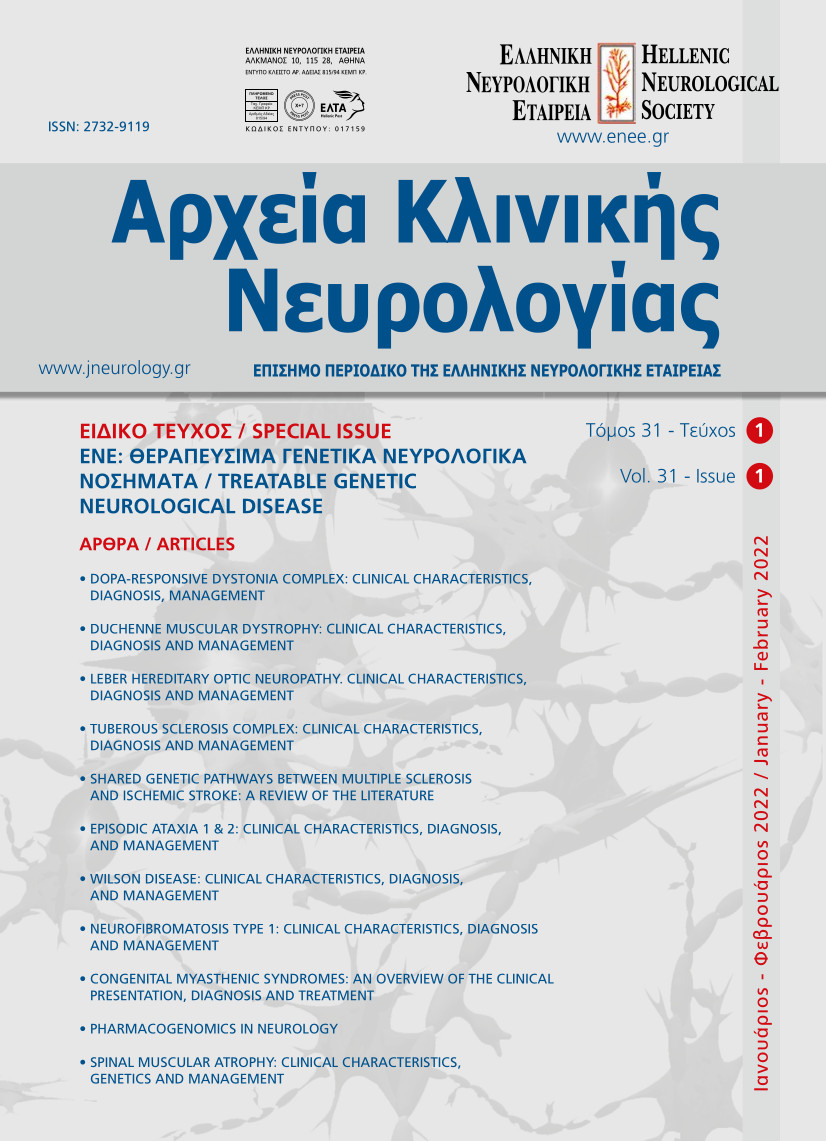WILSON DISEASE: CLINICAL CHARACTERISTICS, DIAGNOSIS, AND MANAGEMENT
Περίληψη
Wilson disease is a rare genetic disease, affecting multiple systems. The cause of the disease are mutations
in ATP7B gene and is inherited in an autosomal recessive manner according to Mendel’s laws. Mutations
in ATP7B gene cause a decrease in copper secretion and consequently copper hyperdeposition in many
tissues and organs. The main clinical manifestations come from the liver and the central nervous system,
but a plethora of other organs may be involved. The diagnosis can be established using the Leipzig criteria,
but the final diagnosis requires genetic testing. Chelation therapy is the main treatment, but secondary
manifestations require specific management. Although to date there is no effective treatment, the symptoms
of the disease can be treated adequately with the existing treatments and patients usually have a
good quality of life.


